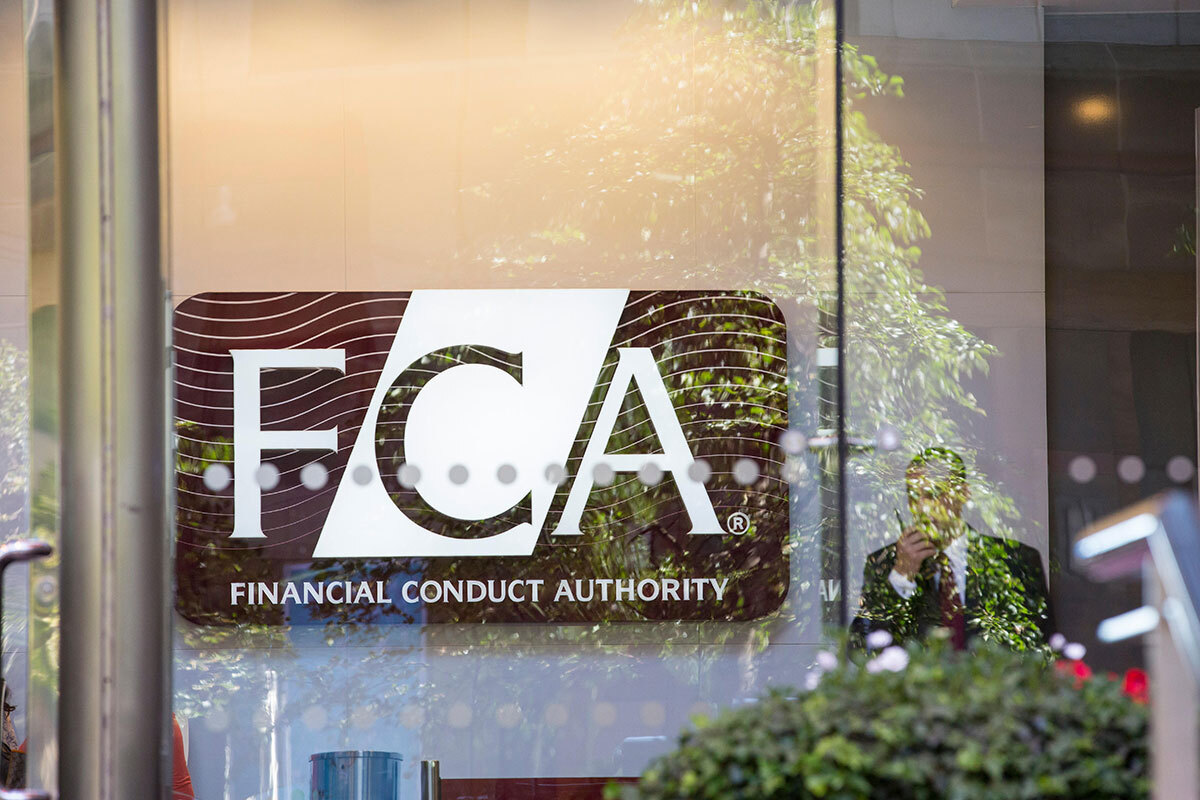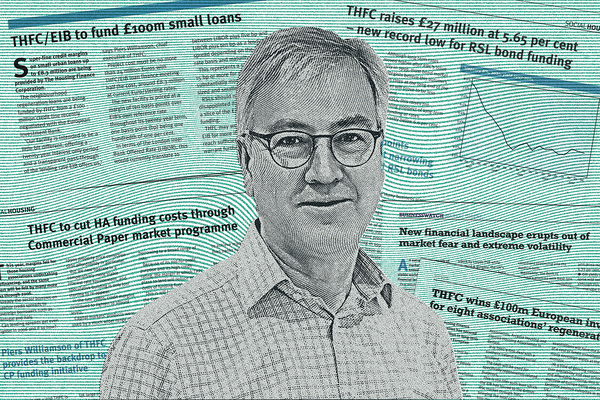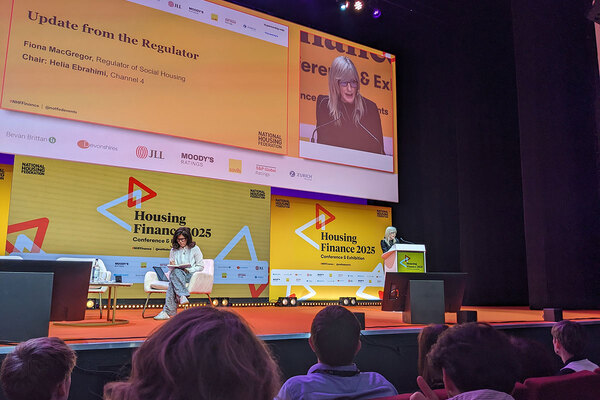Is social housing ready for the convergence of sustainability and financial reporting?
The government’s ambition and regulation mean the financial and housing sectors are on a similar trajectory, writes Piers Williamson, chair of Sustainability for Housing
Every few years or so, housing association finance directors and their teams go through the painful process of adapting to the latest change to financial reporting standards.
I imagine terms such as component accounting and FRS (Financial Reporting Standard) 102 are rather triggering for some, but the housing association sector is fortunate in that it has a strong sector voice on such matters.
The Financial Reporting Council essentially outsources the housing sector’s statements of recommended practice to key membership bodies, including the National Housing Federation, the Scottish Federation of Housing Associations and Community Housing Cymru.
However, given the many competing pressures at its door, the sector has been almost silent when it comes to one of the biggest transitions financial reporting is set to experience: the convergence of sustainability and financial reporting.
UK sustainability standards are nigh
Perhaps for political reasons, the UK government sees the financial services sector it regulates as a means to influence a move towards carbon neutrality.
The UK’s financial regulator is increasingly mindful of greenwashing by fund managers.
The Financial Conduct Authority has recently activated an anti-greenwashing rule which applies to all firms from May 2024.
Meanwhile, there is also an inclusion in the Prudential Regulation Committee’s latest ‘have regard to letter’ of making the UK a world leader in sustainable finance and spearheading the green transition.
More pressingly, we are fast approaching the first quarter of 2025, when the UK government is consulting on the country’s first two UK sustainability reporting standards (SRS), which are set to form part of a wider sustainability disclosure reporting framework led by HM Treasury.
It’s a culmination of plans first set out at COP26 in Glasgow in 2021 that led to the creation of the International Sustainability Standards Board (ISSB), an independent standard-setting body within the International Financial Reporting Standards (IFRS) Foundation.
The two new standards in question are set to be a game-changer for the UK, which has been a strong supporter of ISSB, but – thanks to a certain referendum a few years back – needs to create its own version for a UK audience.
IFRS S1 sets out general requirements for the disclosure of material information about all material sustainability-related financial risks and opportunities and other general reporting requirements. IFRS S2 sets out disclosures that are specific to climate-related matters.
Earlier this month, the UK’s Sustainability Disclosure Technical Advisory Committee was finalising its recommendation to the secretary of state at the Department for Business and Trade for endorsing the IFRS sustainability disclosure standards for use in the UK.
Following consultation, it is thought the standards will be endorsed by the summer and sustainability reporting expected the following year.
The ‘so what?’ for housing
While the intention is that these IFRS standards will only apply to the largest companies and those with publicly listed debt, these rules will apply to the vast majority of investors in UK social housing.
Their own assurance processes will necessarily focus on significant environmental, social and governance (ESG)-oriented investments and look for confirmation of any deemed risks.
Housing associations represent one of the most successful public-private partnerships in the UK economy.
They have attracted third-party private investment of around £130bn from some of the largest UK banks, life companies, insurers and pension funds, along with investments from a wide group of US mutual and insurance funds.
As ESG criteria is further embedded into reporting as part of investment ‘hygiene factors’ and performance measurement, particularly among UK and European funds, the sector’s core business continues to make it an attractive ESG investment. And we would argue it sets it apart from other corporates and industries.
However, the fact that ESG reporting remains voluntary for even the vast majority of housing associations, is a double-edged sword.
Where the SRS comes in
Initial thinking has been that these changes only really apply to very big housing associations and those that issue public bonds at best. But when you think about the filter of assurance, and internal audit within financial institutions, investment in social housing is quite a big chunk of what they do.
And they will naturally turn to housing associations to ask, ‘What are you doing about this this stuff then?’.
It’s critical that the sector speaks with one voice on this, that it has a plan – and it uses a set of consistent criteria that are ahead of the game.
We are therefore at a point in time where we believe the Sustainability Reporting Standard for Social Housing (SRS) – now adopted by more than 130 housing associations and funders – will come into its own.
Sustainability for Housing (SfH) was founded to act at the interface of investors and housing associations, detailing individual and sector performance against through a bespoke set of ESG criteria that align with relevant national and international reporting standards.
The external forces at play only seek to heighten the importance of SfH conforming as much as possible to the methodology and approach that the investment world applies and expects.
Proportionality of application is also important, as the span of SfH adopters is from large housing associations to a significant number of community-based associations.
We see the SRS as the golden thread for ESG and sustainability reporting in social housing, driving greater accountability, helping the sector strengthen its story to a whole range of stakeholders and preparing housing providers for a new era of financial and sustainability reporting.
As part of SFH’s work, we’ll be reviewing the IFRS requirements and ensuring the SRS criteria is suitably aligned.
The next 12 to 18 months is crucial for sustainability reporting. UK housing cannot afford to be left behind.
Piers Williamson, chair of Sustainability for Housing
Sign up for Social Housing’s comment newsletter
New to Social Housing? Click here to register and sign up to our comment newsletter
The comment newsletter brings you a fortnightly selection of specialist opinion, guidance, and political and economic commentary, from a unique range of leading experts.
Already have an account? Click here to manage your newsletters.
RELATED










